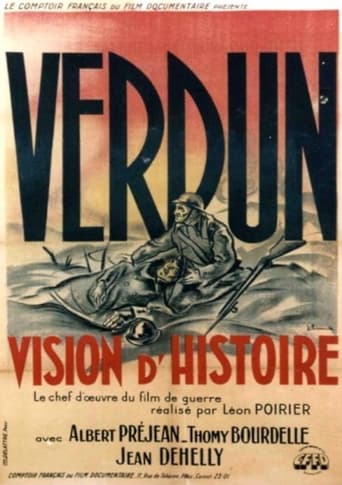

Gripping story with well-crafted characters
... View MoreCrappy film
... View MoreBetter Late Then Never
... View MoreWhat a freaking movie. So many twists and turns. Absolutely intense from start to finish.
... View MoreIt is a shade shocking to find how little known this film is. It is a highly important exercise in docufiction, of a very different kind but in its way just as important as Benjamin Christensen's great films Haxan of 1922 and it is a hugely important example of European "naturalistic" style (tinged with impressionism, which might be described as an intensified from of naturalism) that can be seen at it very best in the European films of the late 1920s both in documentaries (city symphonies like Ruttmann's Berlin and Vertov's Man with a Movie Camera) and in the photoplay (The films of André Antoine and Jean Epstein, Gance's La Roue and Napoléon, Kirsanoff's Ménilmontant, the "Ziller" films of Gerhard Lamprecht, Robert Siodmak's Menschen am Sonntag, Murnau's Der letzte Mann).There is an important continuum here between naturalism and so-called "impressionism" which is often overlooked by seeing "French impressionists" rather falsely in isolation as a separate "movement" (David Bordwell, typically) rather than appreciating the links back (particularly to the films of Albert Capellani in France) and the links forward (to Jean Vigo and "poetic realism"), and the links laterally to equivalent developments in say Swedish and Italian and even Japanese film, a broader perspective that places the films of this period in the absolute mainstream of European (as opposed to US) cinema.The defence of Verdun is an iconic moment of the Great War (now nearly forgotten? by whom? not in France, my friend). Despite the film's attempts at objectivity it is inevitably in the context a somewhat patriotic (some understandable cocorico's particularly towards the end) and mildly sentimental account (and there is a quite deliberate impressionistic "subjectivity" built in, as it were, to the objectivity) but it nevertheless succeeds remarkably well at approaching a kind of "truth" cinema entirely different from the formally realistic and intentionally untruthful US model. Notable for instance are the markedly unpropagandist representations of the Germans. Of course "truth" will always remain relative and elusive but the intention of the film-making is here all-important.Excellently restored in 2006 (and thank goodness we have the silent not the sonorised version), it is a film that should be on everyone's playlist.
... View More"Verdun, visions d'histoire" is a dramatised account of the key World War I battle in which French troops, fighting alone and often in desperate hand-to-hand combat, had to halt the German advance at all costs. The film uses newsreel footage, Poirier's own highly realistic reconstructions of the conflict (by far the largest element of the film) and some little dramatic scenes which are fairly perfunctory compared to "The Big Parade", say, but which nevertheless add a thread of personal interest to the events. The film is told from both sides and is surprisingly sympathetic to the German point of view, considering when it was made. Poirier's pacifist stance is revealed in several moments, notably in one scene when two angels descend onto the battlefield and extract the souls of two soldiers, one German and one French, and place them together on a stretcher which they carry up to heaven.The re-enacted battle sequences, for which Poirier used original locations and even some of the surviving combatants, place the viewer in the midst of the horror, crawling across no-man's-land, cowering in fox-holes, or being blown apart in trenches. In fact, when you watch documentary programmes with "historical" footage of trench warfare, chances are it came from this film, made 10 years after the battle. (Most actual newsreel footage of the time shows lines of smiling troops marching off to battle but avoids depicting the carnage of war, for obvious propaganda reasons.)In 1931, a re-edited sound version, "Verdun, souvenirs d'histoire" was released with some re-shot scenes using different actors. A restoration of the best existing print of the original silent version (stolen from France by the Nazis, then grabbed by the Russians at the end of the war) has recently been issued in an English-friendly French DVD edition.
... View Moreit's hard to believe that this film was made in 1928. the photography is outstanding. the print was sharp. and the music (played by a live pianist in this case) is utterly sublime. the special effects are extremely well done, with a variety of explosions (ok, a huge variety of explosions), ghostly images, scenery (the french countryside as a moonscape of craters and splintered trees) and graphic maps that would work nicely in a film created today.considering that this is essentially a documentary/re-enactment of the now nearly-forgotten world war one trench battle of verdun, it is surprisingly engrossing material. the presence of several fictionalized characters fighting through the battle helps hold interest as opposed to a dry, third-person telling. it has a pro-french slant (it is a french film, after all), but the Germans are presented sympathetically.i understand that this film has been "lost" for years, with a print recently reconstructed from footage found in a moscow film archives (the Germans took the original during ww2 & the russians subsequently took it from them later in the war) and it has only been shown a handful of times, though a DVD is coming soon. if the opportunity presents, see this movie. the music alone is reason enough, but pair that with the images on screen and it's amazing.
... View More